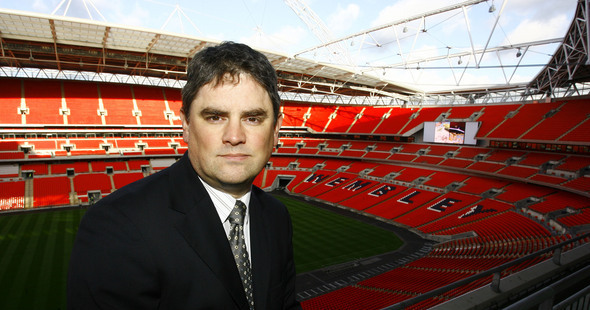Hands Up Who Uses A Rubber Frog?- Paul Kimberley
March 6, 2012
Sometimes we’re selling, and sometimes we’re buying, but like them or loathe them, presentations are a part of business life. But, when was the last time you were presented to in such a way that the details really stayed with you?
Whilst changing job last month I had the opportunity to attend a seminar about the ‘reptile’ brain. The theory is that there are three parts to the brain, and the reptile brain is the most instinctive. The example given to illustrate the reptile brain is when you walk past a stick that looks like a snake and automatically step back without thinking about it. This kind of automatic response is triggered by the reptile brain. The seminar was about trying to engage with people at this level.
The session was full of business people from all manner of industries, and the common theme was how do you make ‘your’ presentation stand out?
The reptile brain was from an American concept (www.neuromarketing.com) but the presenter was French. At one stage he took out a rubber frog to illustrate his nationality. His message was that few people use ‘props’ in presentations – but they should. People remember when something engages with them – and one of the best ways to engage with people is with ‘props’. His frog example to signify his French-ness was a good one, and created an image that lasted.
The more you think about this, the more logical it is. In particular, people are used to being bored in presentations, so a little bit of theatre goes a long way.
Hours are spent honing presentations, images and video, but how many of us take something tangible into a presentation?
In sport we are able to access much better ‘props’ than say a local estate agent. Imagine a lifelong fan of football being allowed to handle an FA Cup winners’ medal, even only for a couple of minutes, how memorable would that be in his/her day? This ‘touching’ of a prop is what connects with the reptile brain.
Grand Final winners rings, caps awarded for playing for one’s country, trophies (or mini replica’s), a match ball, these props are all around us, but rarely used.
Props won’t convert people into customers in isolation, but as a way of making a pitch more memorable, and keeping peoples interest they can be just the job.
About Paul Kimberley:
Paul Kimberley is Sales and Marketing Director at the PPL Group who provide publishing and signage solutions to major events such as the Six Nations, Wimbledon Tennis Championships and The Open.
Before joining PPL Group, Paul served as the Commercial Director of the Rugby Football League.
With around 20 years of experience in the sports industry, Paul specialises in the fields of Marketing, Sponsorship, Commercial, Broadcasting and People Management.
Prior to his 8 year stint at the RFL, Paul served as Sponsorship Manager at Leeds United Football Club (2003-2004). Prior to that, he served as the Commercial Director of Rotherham Titans (2202-2003). Paul has also held positions as Manager at PGA European Tour Courses (1996-2001) and as Marketing Manager at the Broadgate Club (1992-1996).
He studied Business at Manchester Metropolitan University.
Visit: www.thepplgroup.com
{jcomments on}


